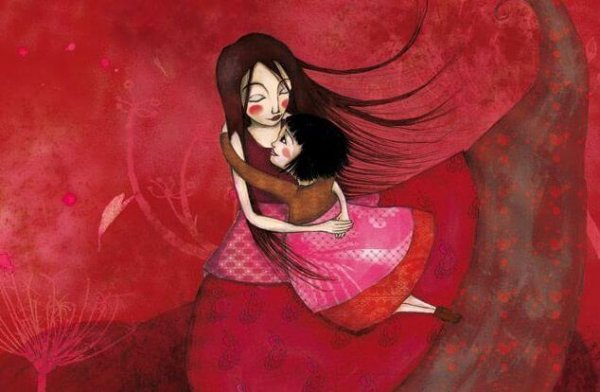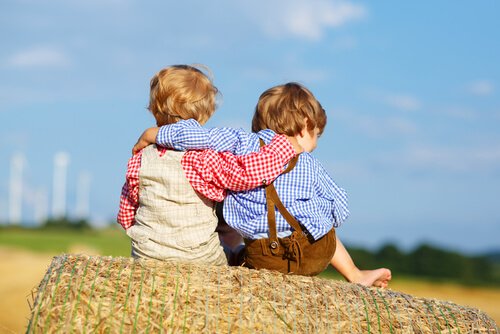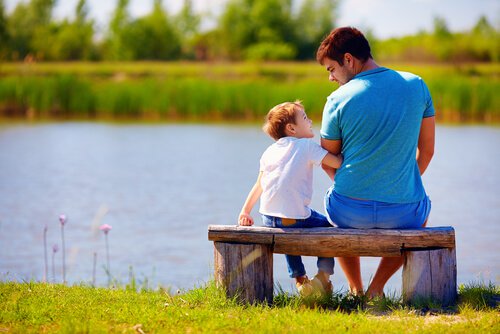The Importance of Apologizing to Children


Written and verified by the psychologist Valeria Sabater
Learning to apologize to children is important. However, many parents think that apologizing to their children is a sign of weakness. No, making a mistake won’t make them think less of you. This is a great moment to teach them about irresponsibility, something all of us should think about.
Something every parent or teacher tries to do is teach children the importance of apologizing whenever they do something wrong, lie, or when they’re impulsive and end up doing something disrespectful or dangerous. Knowing how to apologize is very important in life.

Teaching children how to apologize from an early age makes it easier for them to feel empathy. It helps them take responsibility for their actions and be able to control themselves. This type of behavior sometimes isn’t that simple to learn. Sometimes adults don’t practice what they preach.
Adults don’t like to apologize because it makes them feel ashamed, making children believe that they’re incapable of making mistakes. Despite that, you need to learn something essential. Learning to apologize, and doing it, can improve your relationship with children and make it easier to teach them values.
“Saying ‘I’m sorry’ is saying ‘I love you’ with a wounded heart in one hand and your smothered pride in the other.”
-Richelle E. Goodrich-

The importance of apologizing to children
To understand the importance of apologizing to children, think of a time when someone hurt you, offended you, or lied to you and you didn’t get an apology for it. This hurts and it leaves a scar that time will never erase.
Now, imagine how a child feels when they’re hurt by a parent, their caretaker, or another loved one. If a child never hears an apology, this is what they’ll learn from that:
- Being a figure of power means they’ll never have to apologize.
- People can hurt who they love and everything will remain the same. There’s no need to apologize to someone you hurt.
What does a child learn when you apologize to them?
Pro-social conducts can spread emotions and feelings capable of changing people. The importance of apologizing to children lies in teaching them to be more cooperative, respectful, and know how to live with others. This way, they’ll learn:
- That everybody makes mistakes. The next step is to recognize what they did wrong and fix that situation.
- Although everybody feels ashamed when they apologize, doing it is an act of responsibility that’ll make them feel good afterward.
- When they apologize to someone, they’ll feel better.

When should parents apologize to their children?
- When you don’t keep your promises.
- When you yell at them. This is very common. Sometimes, when you’re stressed, you can lose your cool and raise your voice. This is something you should avoid and apologize for when it happens.
- Saying sorry when you forget something they were looking forward to doing.
- If something happens that keeps you from spending time with them.
- Apologize when you’re wrong about something and also whenever they feel offended.
How to apologize to a child?
Knowing how to apologize to a child correctly and effectively is important. It’s not just about saying you’re sorry, you need to do it right.
- A child can feel bad about something you think is meaningless. Don’t undermine their emotions. Recognize when you’ve wronged them and apologize sincerely.
- When you apologize to a child, explain why you’re doing it. “I’m apologizing because I told you we were going to movies, and we didn’t’. Your mom had to work another shift. I wanted to keep my promise, but I couldn’t. I’m sorry.”
- As soon as you feel you did something wrong, don’t wait too long to apologize. Don’t let them get frustrated and disappointed for long.
- Finally, promise them that it won’t happen again. Telling them you’ll try harder and showing you worry about them, is a way to lead by example, to inspire them to do the same and learn from you.
In short, being able to lead by example and properly teach children the value of forgiveness will lead to a more humane and respectful society.
All cited sources were thoroughly reviewed by our team to ensure their quality, reliability, currency, and validity. The bibliography of this article was considered reliable and of academic or scientific accuracy.
- Craig E. Smith, Diyu Chen, Paul L. Harris (2010) When the happy victimizer says sorry: Children’s
understanding of apology and emotion. British Journal of Developmental Psychology (2010), 28, 727–746
This text is provided for informational purposes only and does not replace consultation with a professional. If in doubt, consult your specialist.








